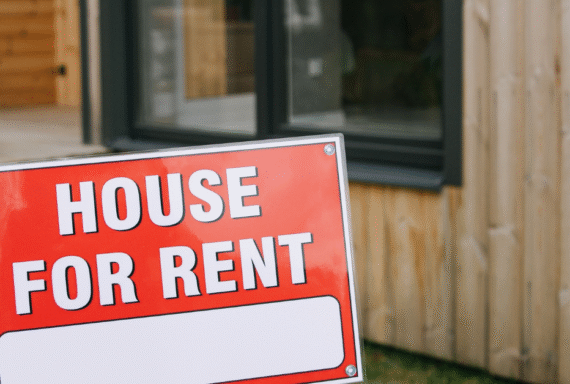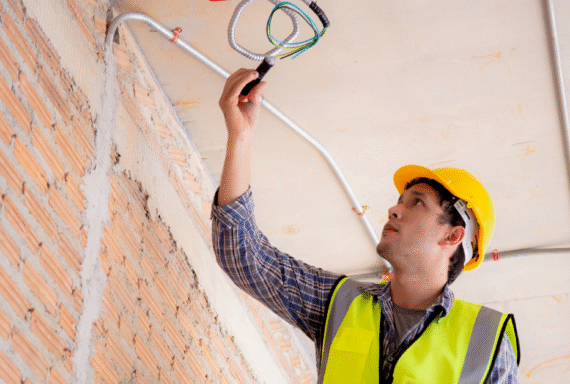
Owning or renting a home in a community with a homeowners association can improve property values, encourage consistent maintenance, and foster a welcoming atmosphere. At the same time, the rules and regulations set by the HOA board can create stress for residents who are unsure how to comply. In Las Vegas, many communities follow formal guidelines to protect common areas and preserve a neighborhood’s look. Yet one minor oversight may bring fines, notices, or other hassles.
This guide offers solid information to help you protect yourself from unwanted fees, show you how to respond to possible violations, and share ways to maintain peaceful relations in your association.
Understanding Las Vegas HOAs
A homeowners association (HOA) is an organization that enforces specific regulations in a residential community. The purpose is to ensure shared amenities stay in good shape and preserve property values. In a typical HOA community, rules may address exterior changes, landscaping, noise levels, and other concerns. Buying or renting a property in such a neighborhood makes you subject to these rules. Over time, issues may arise if a homeowner or occupant does not follow them.
How HOAs Work
In Las Vegas, many homes are governed by an HOA board. This board consists of board members who often reside in the same neighborhood. They aim to keep the entire development well-maintained and consistent with the original vision set by the governing documents. These governing documents usually comprise Covenants, Conditions, and Restrictions (CC&Rs), bylaws, and community guidelines. Each homeowner, occupant, and guest must abide by these regulations. Failure to do so can lead to fines, notices, or legal action.
Common HOA Violations in Las Vegas
When you live in a common interest community, you might face a range of potential citations. Some violations happen more often than others. Knowing the most common HOA violations can save you time and money. In Clark County and beyond, you may see rules on landscaping, architectural guidelines, parking, trash, and more.
- Landscaping and Weed Violation
Many associations want front yards and common areas to look neat. A weed violation occurs if you let your lawn or garden get overgrown. It is best to schedule maintenance to avoid these problems, especially during warmer months when weeds can grow fast. - Parking Problems
Some Las Vegas HOAs have strict parking restrictions to keep streets clear. Issues might include parking too many cars in the driveway, parking in guest spaces, or blocking fire lanes. Always read your HOA’s parking rules to stay in compliance. - Architectural Changes Without Approval
If you plan to paint your front door, add a patio cover, or change windows, your HOA governing documents might require prior approval. Some associations have specific rules on color, style, or size. Submitting an architectural request in a timely manner prevents big headaches. - Exterior Maintenance and Garage Door Rules
A neglected exterior, such as a peeling garage door, can attract unwanted attention from the HOA. Associations want the community to look uniform, so they may cite chipped paint or broken fixtures. Routine upkeep lowers the chance of a violation notice. - Unauthorized Rentals or Incorrect Rental Property Address
Many HOAs regulate rental properties to ensure the community remains stable. Some require owners to provide a recent mailing address or notify the board about the tenant’s address. Others demand that the lease signing follow certain steps or that the management company be informed. Failing to follow these steps can lead to huge penalties. - Improper Trash Disposal
Placing your trash bins on the curb too early or leaving them out too long can be seen as a violation. HOAs typically have a schedule for trash and recycling. Check the rules so you know when to put your bins out and bring them in. - Political Signs and Unauthorized Displays
Some communities restrict certain items in yards or windows. You can usually display signs within the guidelines outlined by state law, but it is wise to verify how large they can be or how long they can remain.
Why Las Vegas HOAs Issue Fines
Many homeowners ask why HOAs issue such huge fines or take swift action. Associations have a duty to enforce the rules outlined in their documents. When a rule is broken, the HOA may send a notice to the owner or occupant explaining the violation. If the resident fails to respond or correct the issue, the HOA can impose fees and possibly move toward legal action. Fines are meant to encourage compliance and preserve the look and feel of the community.
Some HOAs charge daily fees if you fail to fix the problem in a timely manner. Over time, this can become a real pain if you do not respond. It can lead to a lien on the property or a legal battle in court. Local laws, such as Nevada Revised Statutes (NRS) 116, regulate how an association can enforce its rules. Knowing these statutes helps you understand your rights and obligations.
Tips to Avoid HOA Violations
1. Read the Governing Documents
Before you change anything on your property, review your HOA’s governing documents. These often explain rules on landscaping, paint colors, mailbox styles, or front door designs. If the association changes or updates the rules, they usually send a letter or email. Keep track of these updates so you know the most current guidelines.
2. Maintain Proper Communication
If you own a rental property, it is essential to ensure your HOA has your most recent mailing address. Many management companies rely on official records to send violation notices. If you are unreachable, you might be charged huge fines without ever seeing the warnings. Stay in touch with the HOA board and respond when you receive an inquiry.
3. Submit Architectural Requests
When planning renovations, always look for any needed approval. If the HOA has an architectural committee, fill out the necessary forms, attach photos letting them see your intended changes, and wait for their written response. This simple step can help you avoid big problems later.
4. Follow Seasonal Guidelines
Some associations have seasonal rules, such as how holiday lights should be displayed or how landscaping should be handled in extreme heat. Study these guidelines and plan accordingly. This can save you from accidental violations.
5. Keep Your Property in Good Shape
Regular yard work, cleaning, and small repairs go a long way. Check your garage door, fence, and entryway for signs of wear. By doing these tasks consistently, you reduce the risk of an HOA violation.
6. Document Everything
If you receive a violation letter, keep copies, note the date, and record all communication. This can protect you if the HOA tries to charge extra fees. Good records also help you respond accurately if the board has questions.
Handling Disputes and Fines
Sometimes, conflicts with the HOA are unavoidable. A simple misunderstanding about the rules might result in a violation. If this occurs, there are steps you can take to resolve the problem before it spirals into huge penalties or legal action.
- Contact the HOA Board or management company. When you receive a violation notice, do not ignore it. Reach out to the HOA board member listed on the letter or the management company that handles enforcement. Ask them to clarify the problem. If you have proof of compliance, share it immediately. A calm, polite conversation can end many disputes fast.
- Review local laws and regulations. NRS 116.011 addresses how HOAs can enforce rules. If you believe the HOA’s actions do not align with state law, gather facts and remind them of the proper process. For instance, associations in Nevada must give an owner a certain amount of time to fix a violation before imposing fines.
- Request a hearing. Many HOAs must allow an owner to address the board in person if a violation is disputed. You can present your side, supply documents, or argue that the alleged violation does not apply. This hearing can occur during a board meeting or a separate session arranged by the management company.
- Propose a settlement. If the violation is valid but the fines are more than you can pay immediately, talk to the board about a payment plan. Some associations are willing to negotiate if the owner demonstrates willingness to fix the issue. This helps both sides avoid further conflict.
- Seek mediation or court intervention. If the dispute persists, you may involve a neutral third party. Mediation can lead to a fair resolution without spending large amounts on attorneys. In extreme situations, you might face the HOA in court, but that is often the last step.
Landlords, Tenants, and HOA Rules

Las Vegas is home to many rental properties. If you rent out a house in an HOA community, you have added responsibilities. The rules of the association apply to your tenants as well. The tenant lives on-site, but the owner is often held responsible if the occupant does not follow the rules.
Informing Tenants About HOA Regulations
When drafting your lease, include a clause informing tenants about their obligation to comply with the community’s rules. You may provide them with the HOA governing documents before lease signing. This transparency helps them understand their role and prevents possible misunderstandings.
Keeping the Correct Mailing Address on File
Always give the HOA your current mailing address and the tenant’s address. If you move, promptly update your contact details with the board or management company. Failing to do so can result in missed notices and unwanted fines.
Explaining the Same Rules
Make sure your tenants realize they must follow the same rules as homeowners. This includes parking, trash, landscaping, and noise standards. Clarify how to handle specific tasks, like taking out the garbage or maintaining the yard. This sets a clear expectation from the start.
Working with a Property Management Firm
Some owners choose to hire a property management company that deals with day-to-day issues. This arrangement may include landscaping, maintenance, and rent collection. The manager can also communicate with the HOA on your behalf and ensure compliance. Though you will spend money on management fees, it might save you stress.
Real Estate Agents, Sellers, and Buyers

In Las Vegas, real estate agents should disclose HOA rules and fees when showing a property. Many people buying a home in a common interest community are unprepared for the responsibilities of an HOA. It is wise to research any additional costs, upcoming assessments, or possible violations the seller might face. A real estate agent can provide insights, but you should also review the association’s conditions on your own.
If you are selling, make sure your property does not have outstanding violations. Clear them up before listing. Buyers can be discouraged by open fines or pending legal action. Resolving these issues makes the sale smoother.
Common Pitfalls for New Residents
- Unclear Understanding of Rules and Regulations: New owners or renters might not read the fine print in the CC&Rs. Skipping these details can result in unintentional mistakes and subsequent fines.
- Ignoring the HOA’s Communication: Some people do not open mail from the association, assume it is junk, or forget to update a recent mailing address. This is a fast way to accumulate fees.
- Making Exterior Changes Without Approval: Painting walls or installing new features without authorization is one of the most common HOA violations. Always check first to avoid large penalties.
- Failing to Pay HOA Fees on Time: Associations rely on regular dues to handle community maintenance. Late or missed payments can result in extra charges or even a lien on your home.
- Mismanagement of Rental Property: Owners who rent out units without setting clear rules for tenants risk dealing with repeated violations. This is why many HOAs request the owner move quickly to fix any problem caused by tenants.
Dealing with Huge Fines
A single violation may lead to a warning, but repeated offenses can attract huge fines. These fees can accumulate if you fail to act. If you face a large bill, review the association’s policies to see how they calculate the amount. Ask for an itemized statement. If the charges seem unfair, contact the board to request a hearing. Some HOAs might reduce or waive certain fees if you fix the problem quickly and show you understand the situation.
If that does not work, you can explore a formal dispute process. Nevada law outlines your rights as a common-interest community owner, including how to challenge assessments or fees. However, court battles can be time-consuming and expensive. Often, it is cheaper and more efficient to reach a compromise.
Addressing Architectural Guidelines
Many HOAs have strict rules about architectural changes, protecting the development’s appearance. If you plan to install a pool, add a patio cover, or paint your house a new color, check the governing documents. Most associations have forms or an online portal where you submit your project details. Provide drawings and let them see your plan and any other requested documents. Then, wait for an official green light before starting. Acting first and asking later can be costly.
What If You Receive a Violation Letter?
- Stay Calm: It may feel frustrating, but panicking does not help. Read the notice carefully.
- Gather Information: Check the specific rules cited. Review the date and details of the alleged violation. Compare them with your own records.
- Respond Promptly: Do not wait. Write or call the HOA. Some associations have strict deadlines for contesting violations. If you stay silent, you risk extra fines.
- Offer a Fix: If the claim is correct, fix the issue as soon as possible. Then, provide proof you did so. This can reduce further penalties.
- Seek Advice If Needed: If you think the HOA is acting outside its authority, you can consult a real estate attorney or the Nevada Real Estate Division. Sometimes, an outside view helps clarify the problem.
Potential Legal Action
The HOA might threaten to take you to court if a dispute grows. In Nevada, associations must follow certain steps before legal action can happen. They might have to give several warnings or hold a hearing. Only after these attempts fail do they proceed with a lawsuit. In severe cases, the HOA can place a lien on a property for unpaid fines. This can have serious consequences for your credit and your ability to sell.
If you think you have a strong defense, you can fight the violation in court. Keep detailed records of all communication, receipts, and photos. You may also bring in witnesses if the violation is disputed. A judge or mediator will then decide if the HOA acted within local laws and the association’s regulations. This process can be long, so it is wise to attempt a settlement if possible.
Maintaining a Positive Community Experience

Living in an HOA community comes with shared benefits and responsibilities. You enjoy well-maintained amenities, safer streets, and a consistent appearance throughout the neighborhood. Yet you must also stick to regulations that may feel strict at times. Balancing these factors can be easier when you stay informed and build respectful relationships with neighbors and the board.
Suggestions for a Positive Experience:
- Chat with neighbors about any shared concerns. Work together to propose solutions or improvements to the board.
- Keep track of announcements. Knowing about upcoming changes to regulations can help you prepare.
- Offer constructive feedback when the board proposes a rule change. Your voice counts.
Stay Compliant and Stress-Free with Expert HOA Guidance
Safeguarding your property from HOA fines in Las Vegas demands knowledge of local rules, consistent upkeep, and open contact with your association. Stay aware, follow neighborhood guidelines, and address concerns to avoid penalties.
Faranesh Real Estate and Property Management is here to help if you need support. Our team knows the local area and stands ready to assist with HOA regulations. We work to protect your property, reduce stress, and bring peace of mind. Contact us today to learn how we can help you avoid fees and keep your home secure. Reach out for guidance and enjoy a worry-free living experience.




